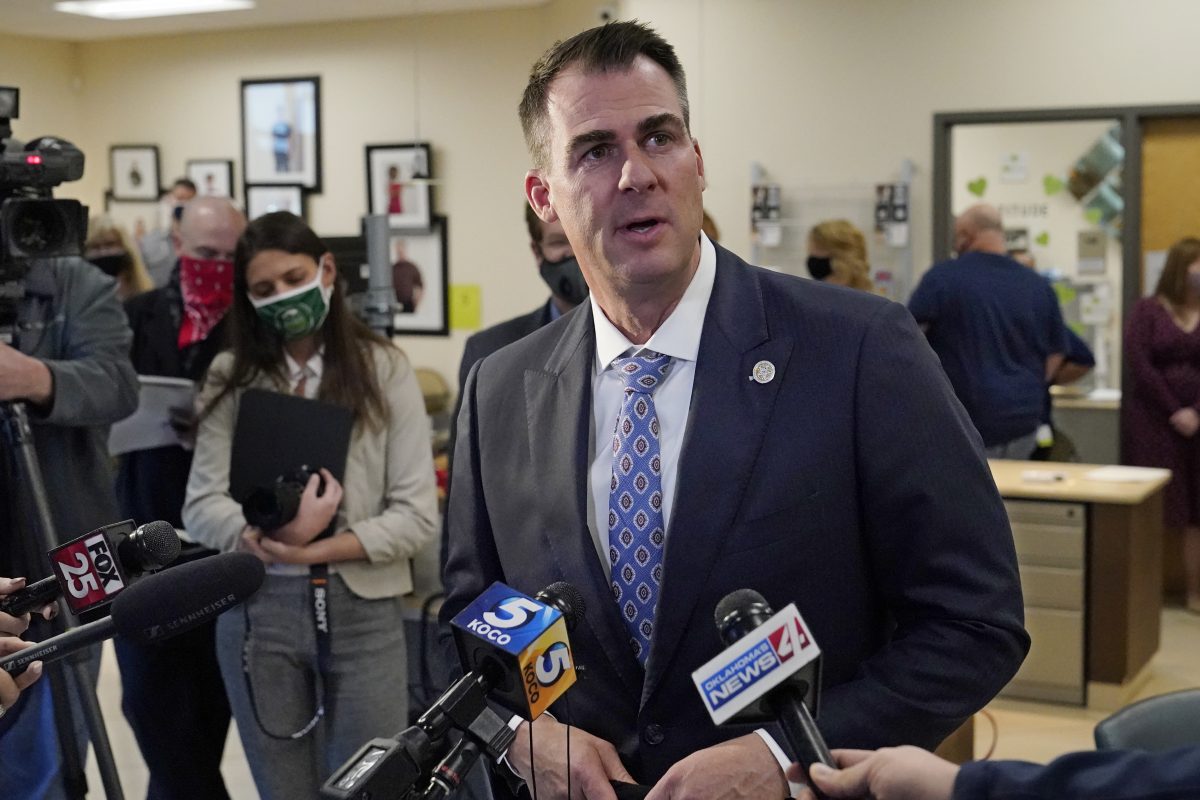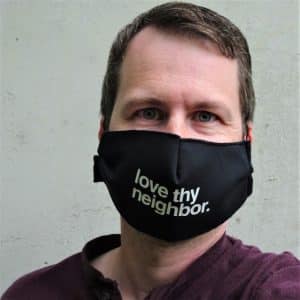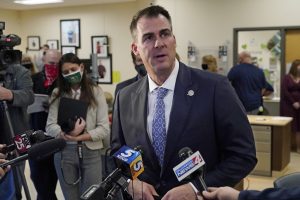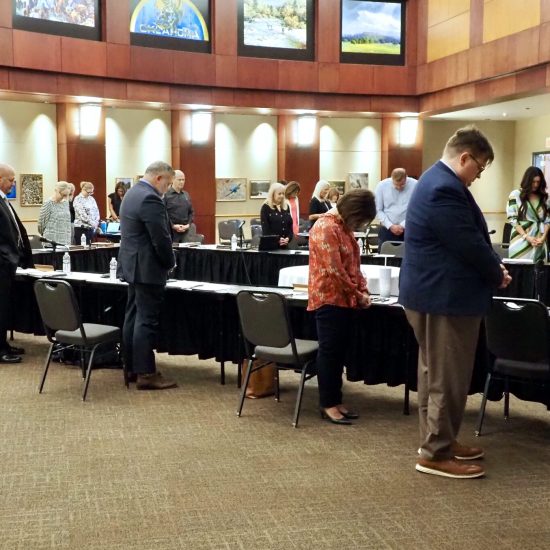
The angriest I ever saw one of my former ministry bosses and mentors came after someone wrote a column suggesting a conflict in Baptist life could be over if people just prayed more. As someone leading a new organization birthed from that conflict, he took offense to the suggestion he hadn’t prayed about this new ministry direction. He hadn’t just prayed, he also put those prayers into action.

Brian Kaylor
Sometimes it seems we can throw out a call to prayer as just a cop out from taking real action ourselves. Let’s pin this all on God, even though it might be God is again calling on God’s followers to act as the hands and feet of the Divine.
Using prayer to cover up our own misdeeds or guilty inaction isn’t just upsetting but can also be dangerous.
Consider the latest move to fight coronavirus undertaken by Oklahoma Governor Kevin Stitt. With COVID rates in his state climbing, the positivity rate from tests increasing, and the hospitalization numbers hitting new highs for the pandemic, the governor this week still refused to issue a life-saving statewide mask mandate. Instead, he called for an official day of prayer on Thursday (Dec. 3).
Prayer can be a powerful act, as the Bible makes clear in stories like Hannah and Hezekiah. But prayer as political theater is sacrilegious, as the Bible also clearly notes.
God isn’t some blue magical genie we spring out of a lamp in a time of need. And chanting the words to 2 Chronicles 7:14 doesn’t work like some mysterious utterance to conjure up spiritual help while huddled around a Ouija board.

Oklahoma Gov. Kevin Stitt talks with the media in Oklahoma City, on Dec. 1, 2020. (Sue Ogrocki/Associated Press)
Stitt’s prayer declaration creates problematic church-state issues as the government shouldn’t be telling us when or how to pray. I don’t need a governor’s permission to pray. I’ve already been praying for healing and mercy during coronavirus. Even my 8-year-old son does that nearly daily without the proclamation of some Caesar.
A government that tells us how to pray or practice our faith is one that feels empowered to decide which people are good citizens based on their religion. After all, Stitt in his official proclamation called on “Oklahomans of all faiths and religious backgrounds to join together” in prayer and fasting Thursday, even though some people don’t pray or fast. Suddenly people are cast out of the democratic community merely for their religious beliefs — the very thing our First Amendment prohibits.
But beyond that church-state problem, Stitt’s proclamation also misuses piety as a cover for his own moral failures.
He argued houses of worship should work to help people, adding, “It’s important that we continue to find safe ways to gather as we all do our part to protect our families, neighbors, and communities from this virus.”
But if he really believes we all need to do our part, then the governor would follow the model of other governors, mayors, and leaders and issue a mask mandate. Masks works. Masks save lives. And he only has to look to his neighbor to the north and see the massive positive impact of mask mandates in Kansas.
But instead of doing his part, he unconstitutionally calls for prayer. And why won’t he issue a mask mandate? He thinks it’s not the job of the state but instead just “a personal responsibility.”
But even if that were true, he already decided to create a day of prayer instead of seeing that as just a personal decision. And if he really believed health dangers shouldn’t be regulated in favor of trusting personal responsibility, then why hasn’t he called for ending child labor laws, fire codes for buildings, or speed limits on all roads?
More people will get sick and die because of the governor’s failure to act, just like his irresponsible behavior and words earlier in the pandemic sent the wrong message. People suffer when leaders fail to act justly.
Since Stitt continues to avoid his personal responsibility as governor to issue a mask mandate — like many other politicians across the country also are failing right now — he hopes to distract us with a call to prayer. But the Bible teaches that God doesn’t look favorably on the prayers of politicians seeking to mask their own injustices and failures.
“To do what is right and just is more acceptable to the Lord than sacrifice,” we learn in Proverbs 21. “Whoever shuts their ears to the cry of the poor will also cry out and not be answered.”
“I hate, I despise your religious festivals; your assemblies are a stench to me,” the prophet Amos records God saying. “Even though you bring me burnt offerings and grain offerings, I will not accept them. Though you bring choice fellowship offerings, I will have no regard for them. Away with the noise of your songs! I will not listen to the music of your harps. But let justice roll on like a river, righteousness like a never-failing stream!”
“What good is it, my brothers and sisters, if someone claims to have faith but has no deeds? Can such faith save them?” James told us. “Faith without deeds is dead.”
So, I hope Governor Stitt and other politicians who fail to act in this time will spare us their calls to prayer and instead answer our prayers with their actions.






